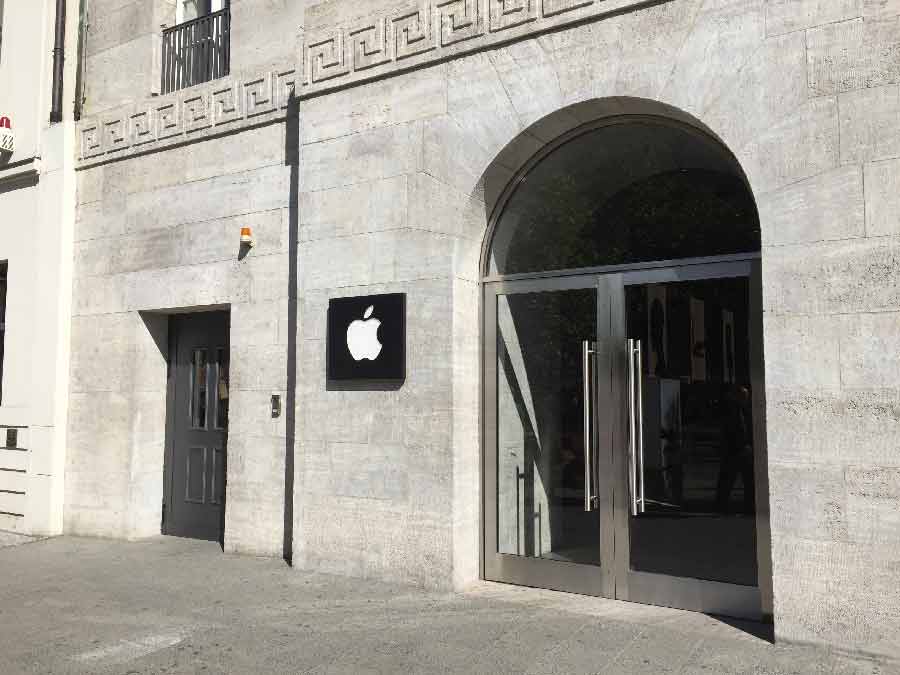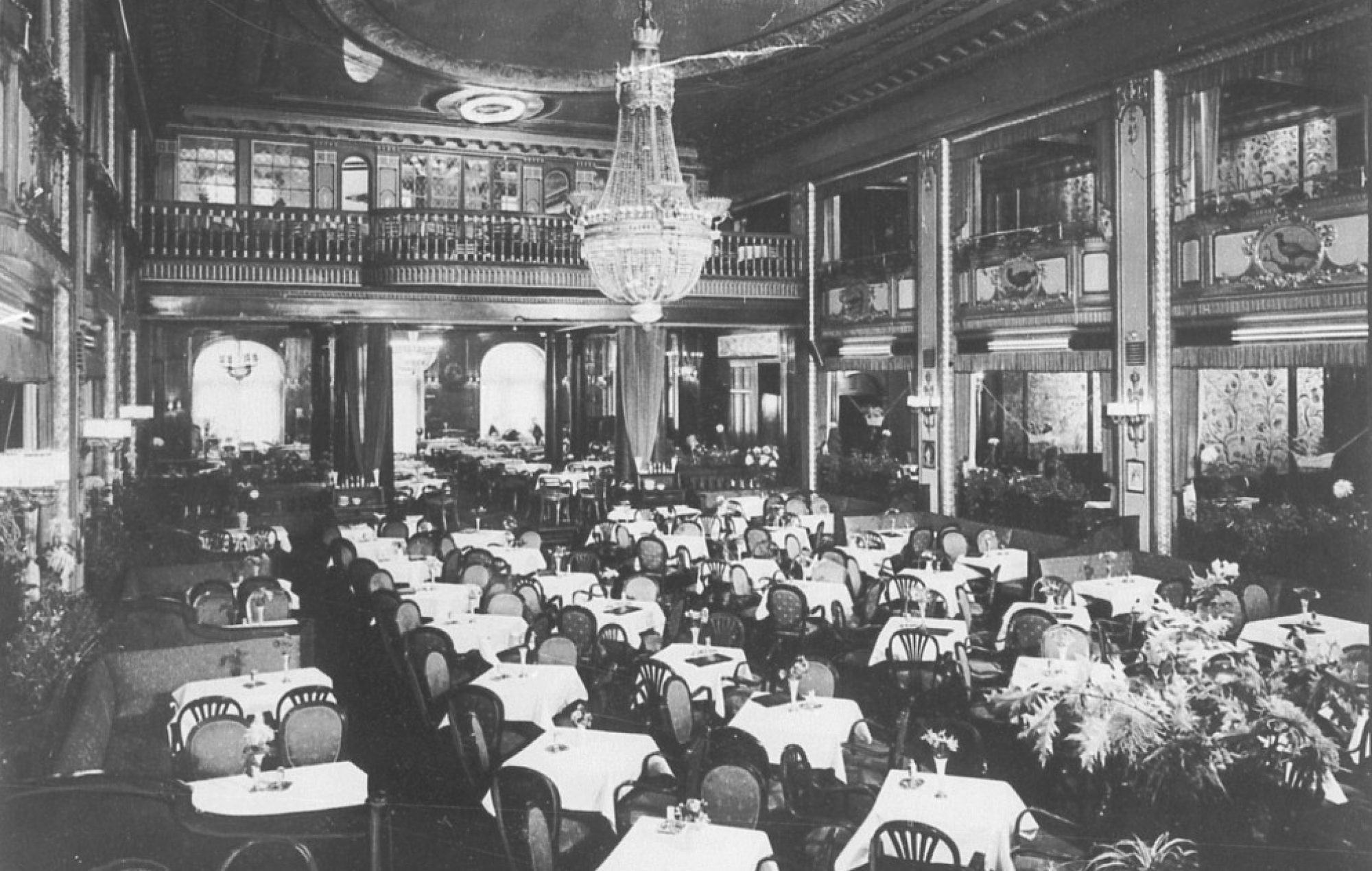Karl Kutschera completed an apprenticeship in Vienna, where he was trained in all areas of gastronomy. Before moving to Berlin in 1900, he worked in Hamburg at the Hotel Hamburger Hof and as a ship waiter on the Hamburg — New York route. Several times he tried to land in America, but his efforts were in vain because he lacked the necessary papers. In 1906 he opened the Cafe Kutschera in Bismarckstraße in Berlin. In 1907 he took over the management of the Zattersall am Kurfürstendamm.
In 1918 he bought the Union-Palais at Kurfürstendamm 26 and in 1919 he opened the Café Wien with a confectionery. Café Wien gained international reputation, especially after he was able to convert and expand the building in 1926 according to his plans, because he had acquired the property in 1926.
In 1929 he had the cellars extended and in the following year he opened the restaurant Zigeunerkeller with Hungarian cuisine and „Zigeunermusik“. Architect Max Abicht was responsible for the construction of the gypsy cellar. The interior design was carried out by the caricaturist A. M. Cay and the press artist Theo Matejko. At that time, it was the largest restaurant in terms of surface area in Berlin below the street level.

In the early 1930s, Kutschera was one of Berlin’s best-known gastronomes. The wine restaurant Zigeunerkeller and the Café Wien had an international reputation and were a popular meeting place for the sophisticated Berlin. From 1924 to 1937 he also operated the Kurhaus Cladow in Berlin-Kladow, where he also lived.
From 1936 onwards, Kutscheras and his restaurants became victims of anti-Semitic persecution by the Nazis, which was accompanied by a campaign of the Nazi weekly Der Stürmer. The striker described the Café Wien and the gypsy cellar as a „Jewish Dorado of the Kurfürstendamm“. Among others, the Gestapo and SD man Heinrich Hamann was responsible for the prosecution of the Nazis. One year and several defamatory articles later, Kutschera was forced to give up. In order to prevent the withdrawal of his concession, he decided to lease both companies to the non-Jewish co-partners Ernst Krüger and Josef Stüber. Soon after, the sign „Jews undesirable“ was displayed above the entrances. He had the operating company deleted from the commercial register shortly afterwards. It was therefore not a boycott of his restaurants that forced Kutschera to give up — his company had even been able to record an increase in turnover compared to the lucrative Olympic year of 1936 — but rather the pressure exerted by the striker on city authorities, which was decisive for his suppression from Berlin’s economic life. By 1937, its operations had an annual turnover of 1.5 million Reichsmark. The company employed 154 employees, including 13 musicians, making it one of Berlin’s most successful restaurants.
Kutschera withdrew to Kladow. The Kutschera family was deported to Theresienstadt concentration camp on 19 May 1943. While Karl Kutschera and his second wife Josephine survived the concentration camp, their two children, Karin-Gertrud (* 1927) and Klaus Gerhard (* 1926), were murdered in the concentration camp Auschwitz.
The couple Kutschera returned to Berlin in June 1945. In 1946 the Café Wien was reopened while the gipsy cellar was still under water.
Karl Kutschera died as honorary chairman of the Berliner Gastwirtsinnung on 19 May 1950, after his death his wife Josephine continued the business until the beginning of the 1970s.
From 7 April to 3 May 2013, the installation by artist Alexander Jöchl „Café Wien — ein Familienporträt“ (Café Vienna — A Family Portrait) was on display in the showcase of the Deutsche Bank branch on Kurfürstendamm 28. This installation was the first in a series of eight artistic installations of the project „Spuren, Hohlräume, Leerstellen — Jüdisches Leben am Kurfürstendamm“. The project of the Institute for Art at the University of the Arts Berlin is being run in cooperation with the Archive of the Museum Charlottenburg-Wilmersdorf as part of the theme year „Destroyed Diversity — Berlin 1933 – 1938-1945“.
Literature
Elisabeth Weber: Die Kutschera-Betriebe. ”Cafe Wien” und ”Zigeunerkeller”. In: Christoph Kreutzmüller, Kaspar Nürnberg (Hrsg.): Verraten und verkauft – Jüdische Unternehmen in Berlin 1933 – 1945. Berlin 2008, ISBN 978 – 3‑00 – 026811‑3, S. 44 – 48.
Christoph Kreutzmüller: Ausverkauf. Die Vernichtung der jüdischen Gewerbetätigkeit in Berlin 1930 – 1945. Metropol Verlag, Berlin 2012, ISBN 978 – 3‑86331 – 080‑6, S. 152.
